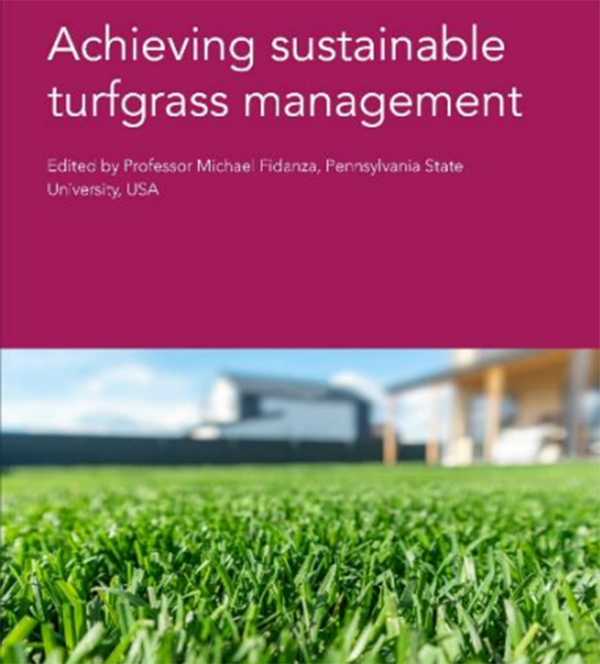Where would the sporting world be without turf?
Where would the sporting world be without turf?: Football, cricket, golf and the National Football League (NFL) are some of the world’s most watched sports. As of the 2021/22 season, the combined market value of these sports amassed over $105 billion. However without one crucial element, none of this would have been possible.
The crucial element we’re talking about is turfgrass – a surface that many of the world’s sporting heroes have once graced: Lionel Messi, Shane Warne, Tiger Woods, Tom Brady, the list goes on.

Where would the sporting world be without turf?
Despite its worldwide use and lucrative nature, the turfgrass industry also has its challenges. For example, the industry is facing increasing pressure to reduce its environmental impact and implement more sustainable maintenance practices that utilise and/or optimise fewer agronomic-related resources.
A new book published by Burleigh Dodds Science Publishing promises to be the ‘go-to’ reference for those across the globe wishing to adopt more sustainable turfgrass management strategies.
Achieving sustainable turfgrass management has been edited by one of the world’s leading experts on turfgrass ecology, diseases and plant protection, Professor Michael Fidanza.
“As global populations grow, annual climate vagaries increase, and biotic and abiotic plant stresses become more uncertain it is now more important than ever to understand how factors like species selection, edaphic conditions and cultural management decisions influence the ecology and persistence of managed turf systems,” says Dr Cale Bigelow, Professor of Turf Science and Ecology at Purdue University, USA.
Turfgrass is used on more than 700,000 athletic fields in the US alone, however it isn’t just used for sporting purposes. In fact the turfgrass industry consists of such a diverse group of consumers, including general homeowners, lawn care managers, architects, parks and grounds superintendents and landowners.
With such a massive consumer base and tens of thousands of people relying on the industry for their livelihoods, there is now an even greater need to improve the industry’s sustainability credentials and reduce its contribution to climate change.
This new book considers the range of alternative, sustainable management practices that utilise fewer agricultural outputs, such as fertilisers, pesticides and fuel to power agricultural machinery.
A significant benefit of the book is its final part which contains five case studies on the establishment of good turfgrass management written by a combination of industry practitioners and academic researchers.
“The book’s inclusion of case studies on unmanned aircraft, variety selection, wildflowers, pollinators and irrigation scheduling provides a unique and interesting overview of the ways in which the industry can adopt more sustainable practices,” says Dr Peter Landschoot, Professor of Turfgrass Science at The Pennsylvania State University, USA.
The book also explores the challenge of treating diseased turf in the face of fungicide resistance and highlights recent advances in turfgrass disease, insect pest and weed management.
“This book contains the latest research-based information on turfgrass science and management and has been written by some of the world’s leading authorities in turfgrass science and ecology,” says Professor Michael Fidanza
“It should be a welcome addition to the bookshelf of every scientific researcher in the field of turfgrass science and management, industry practitioners and students as well and should be top of the list for those in charge of sporting pitches and playing surfaces as an invaluable knowledge resource,” he concludes.
Find out more about this new book here: https://shop.bdspublishing.com/store/bds/detail/workgroup/3-190-109531
For the latest industry news visit turfmatters.co.uk/news
Get all of the big headlines, pictures, opinions and videos on stories that matter to you.
Follow us on Twitter and Instagram for fun, fresh and engaging content.
You can also find us on Facebook for more of your must-see news, features, videos and pictures from Turf Matters.









